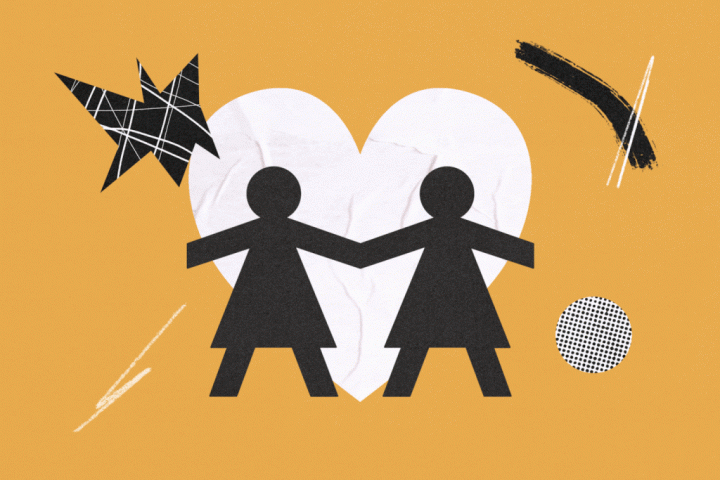Sahaj Kaur Kohli, creator of Brown Girl Therapy and an MA.Ed, will be answering questions about identity, relationships, mental health, work-life balance, family dynamics and more. If you have a question for her, please submit it here.
Ask Sahaj: My girlfriend’s parents disapprove of our queer relationship

By the time I met her (early 30s), she had been operating under a “don’t ask, don’t tell” policy for a decade. She still loves them very much, and decided that they will “do the right thing if they have the opportunity,” which seems to mostly involve her talking to them about me and then getting upset when they shut her down — or getting excited when they don’t react, which she sees as a sign that they’re “changing.”
She also is upset because she believes I’m judging them, which I am. Honestly, I would be happy to never meet them, and it breaks my heart to see her trying to get their approval when these are the same parents who have been historically and consistently abusive.
It feels like she’s just hurting herself over and over, and they live far enough away that encountering them in person isn’t a risk. But, I am born to WASP parents here in the United States, so I know there’s an added complexity of differing cultural experiences, too. How do I talk to her about this and help her?
— Want to help my girlfriend
Want to help my girlfriend: You’re right that there may be several cultural factors at play. In my work with both children of immigrants and immigrant parents, there’s a common theme of protecting the reputation of the family within the community. This can look like hiding something that could be perceived as bad to others (i.e., homophobia is still rampant in immigrant communities), and it can look like pretending everything is okay when it’s not.
Another common theme in immigrant families is the expectation of a child to be respectful, obey and be of service to their parents. While not inherently bad, in some cases, it may create a dynamic where children are riddled with guilt and shame, making it that much harder to self-advocate.
Lastly, many immigrant parents fear cultural erasure, especially as their children choose to be in interracial/intercultural relationships. Beyond sexuality, I wonder if race is an issue for her parents?
Right now, your girlfriend experiences your comments about these dynamics as judgmental. This may be a combination of her not being ready to hear them, the way you are communicating and her feeling triggered by conflict or assertion because of the abuse she has experienced.
She cares for her parents and I presume she cares for you, but both of these feel at odds. You have made it clear where you stand, but she is still navigating her cognitive dissonance. Instead of contributing to this, what would it look like for you to encourage her agency?
Remember that these family dynamics have been her normal for her whole life. Not only does she not know differently, but there are multiple layers of power dynamics, relational trauma, religious shame, cultural factors, guilt, fear and abuse that she has to face.
You love her and you want to protect her — but you also have to take a step back and meet her where she is. While removing people who are the source of pain and trauma might make sense to you, this may be considered countercultural for your girlfriend. And regardless of whether she chooses to be in a relationship with her parents, it doesn’t change the fact that she will have to heal from everything.
As her partner, you can validate what she is experiencing. You can show her what real love, patience and support looks like through your actions. You can nonjudgmentally challenge her conflicting beliefs and statements by reflecting them back to her as facts rather than emotionally charged responses. (For example: “You say your parents may come around, but it’s been 10 years and very little has changed.”)
You can affirm her actions of setting boundaries or speaking up about you or her sexuality with her parents, even if those moments feel small to you. You can be there for her as she continues to process all of this. You can point her toward resources — like a therapist who specializes in family trauma/abuse, a support group and essays by other LGTBQ folks who share their stories of unsupportive parents. You can communicate how much it pains you to see her getting hurt, by using “I” language instead of “you” or “they” language. You can be more curious about the cultural aspect of what she is experiencing (or find more information online — hint: Brown Girl Therapy).
Even if you don’t agree, and even if it hurts you to watch, she will have to navigate some of this alone. You cannot do the work for her. Love can help remind her of her agency, and it can be healing. But if anything is going to change, she will have to take responsibility for her role in that change.
Until then, you can try to lead with love. You will have to figure out how you can care for yourself, too — and ultimately, what you can tolerate.






